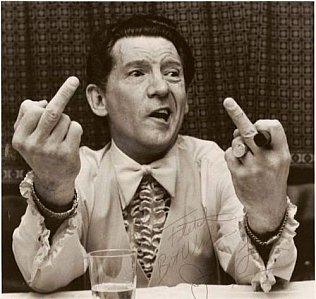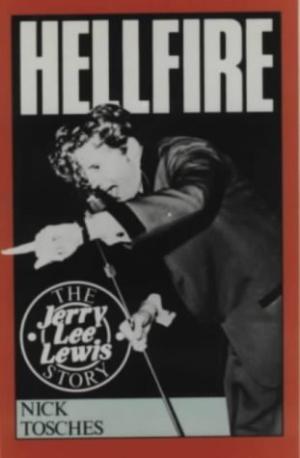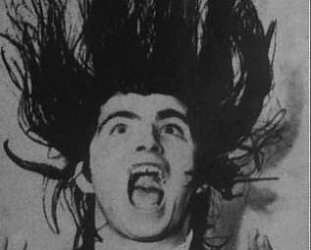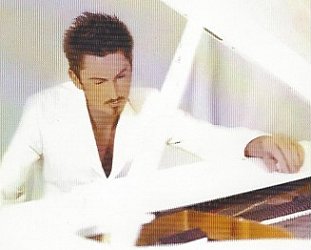Graham Reid | | 2 min read

By the end of 1967, Jerry Lee Lewis, one of the greatest -- and certainly the most outrageous -- stars of the rock'n'roll era was washed up.
The times had changed. It was the world of peace and love and marijuana, a bad fit for a man tormented to his soul by Satan and booze . . . but that wasn't it.
His career had been a series of self-inflicted wounds, not the least when he -- at 22 -- married his 13-year old cousin (his third wife) and took her along when he went to Britain in 1958. He didn't hide her and the press there -- then back in the States after the tour was cancelled -- tore him to shreds.
He just carried on being Jerry Lee: drinking, playing rowdy honky-tonk rock'n'roll piano, hollerin' down Satan and his Lord and all such manner of things.
But the hits had stopped coming at the start of the Sixties, the world moved on beyond righteous and irreverent rock'n'roll and his record companies despaired.
In his superb and seminal book Hellfire; The Jerry Lee Lewis story (published in '82), the writer Nick Tosches -- who gets under the skin and into the tormented soul of Lewis, tells of this comeback song.
 Eddie Kilroy -- a onetime rodeo rider who had previously been at MGM Records and United Artists -- joined Mercury, the company Lewis was signed to. The company was going to quietly let Lewis run out the final year of his contract but Kilroy said they should get him to record a country album.
Eddie Kilroy -- a onetime rodeo rider who had previously been at MGM Records and United Artists -- joined Mercury, the company Lewis was signed to. The company was going to quietly let Lewis run out the final year of his contract but Kilroy said they should get him to record a country album.
Lewis hated Mercury but figured he had nothing much to lose. He'd always sung country and loved Hank Williams' songs so his first thought was record Your Cheatin' Heart. Kilroy had other ideas and he'd hear a song written by Jerry Chesnut which he wanted for Lewis.
He called Chesnut at midnight and asked him to bring over an acetate of his song Another Place Another Time. Chesnut turned up with it still wearing his pajamas.
As Tosches' writes, "Another Place Another Time was a beautiful song of anguish and loneliness, and Jerry Lee sang it in the studio that cold grey afternoon, January 9, 1968, with a voice of one trying to conceal rather than to reveal that anguish and that loneliness . . . and when Eddie Kilroy and the musicians who were in the studio that day heard that voice they felt shivers like cold crawing things up and down their spines, and they closed and opened their eyes, breathing, as if to shake loose a sudden inwards fright."
The song stayed on the country charts for four months and crossed into the pop charts and for the first time in a decade "Jerry Lee Lewis' voice was heard throughout the South".
"It was a different voice -- older, tougher, darker and shorn of all innocence. But it was his voice and he was alive.
"He cast to the ground whiskey and cast to the ground pils, the entwined killing serpents of his many-yeared succor, and with the clear, cutting eyes of a hawk he watched that returned whore, errant fame, raise her skirt, and he felt her belly warm to his, and he threw back his head and he roared as he had never roared before."
With this song the rehabilitation of Jerry Lee Lewis began. He was different, but also in most ways still the troubled soul. His path would still be winding and treacherous but he was being heard again.
At the time of this writing Jerry Lewis is 80 and he has outlived Elvis Presley, Johnny Cash and Carl Perkins (the other voices in the famous Million Dollar Quartet). He has outlived Roy Orbsion. He has outlived two Beatles, whose presence he once scorned and cursed. He has outlived Sam Phillips and most others who recorded him, he has outlived some of his seven wives and two of his children.
He is the man they call The Killer.
For more oddities, one-offs or songs with an interesting backstory see From the Vaults.





post a comment